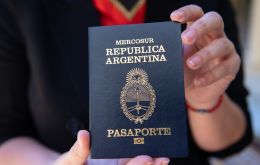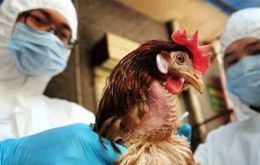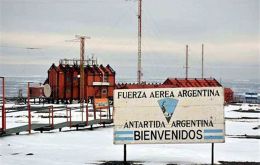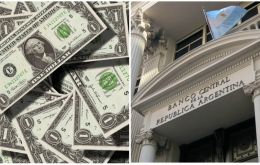MercoPress. South Atlantic News Agency
Argentina
-
Wednesday, February 22nd 2023 - 10:54 UTC
Chilean, Argentine nationalities available to Nicaraguan stateless expatriates

The Governments of Chile and Argentina are among those who would grant citizenship to the Nicaraguan expatriates who were expelled from their country earlier this month and stripped of their nationality on treason charges, it was reported Tuesday.
-
Tuesday, February 21st 2023 - 10:05 UTC
Argentina ups security measures as number of avian flu cases grows

Argentina's health authorities have decided to up their biosecurity measures following the increase in the number of avian flu cases detected nationwide, particularly in provinces bordering Uruguay, but also in Córdoba and Salta.
-
Tuesday, February 21st 2023 - 08:00 UTC
Former Argentine FM lashes out at Uruguayan President over Falklands trip

Former Argentine Foreign Minister Felipe Solá said Uruguay's President Luis Lacalle Pou's “main objective” was “to show his contempt for Argentina” after a group of lawmakers visited the Falkland Islands together with the United Kingdom's Ambassador to Montevideo Faye O'Connor.
-
Tuesday, February 21st 2023 - 06:59 UTC
President Fernández traveling to Antarctica, weather permitting

Argentine President Alberto Fernández is to visit the Marambio Base in Antarctica in a move to ratify the country's “bicontinental” stance, it was reported in Casa Rosada. Fernández's trip will be the fourth visit of an Argentine head of state to Antarctica.
-
Monday, February 20th 2023 - 10:49 UTC
Miguel Ángel Pichetto under heavy criticism for homophobic remarks

Argentina's Comptroller General and former Vice-Presidential candidate Miguel Ángel Pichetto is to be investigated by the National Institute Against Discrimination (Inadi) for his remarks regarding Women's Minister Ayelén Mazzina.
-
Saturday, February 18th 2023 - 10:48 UTC
Argentina's reserves wane as “official” dollar rises

In a country where the exchange rate between the local currency and the US dollar varies from one counter to the other and hinges on the type of operation involved beyond the exchange, Argentina's official rate against Friday pierced for the first time the symbolic AR$ 200 / US$ 1 threshold at private banks, closing at AR$ 191.25 (purchase) / AR$ 199.25 (sale) at the Banco Nación.
-
Friday, February 17th 2023 - 08:05 UTC
Massa holds meeting with Indian Ambassador in Buenos Aires

Argentina's Economy Minister Sergio Massa Thursday met with India's Ambassador to Buenos Aires Dinesh Bhatia to discuss the South American country's participation in the G-20 economic meeting and move forward in the use of local currencies for bilateral trade.
-
Friday, February 17th 2023 - 07:00 UTC
Falklands: PICTO 21 group told to expect no help from FIG or MLAs

The so-called PICTO 21 group of Argentine visitors to the Falkland Islands looking for an accounting approach with which to measure ”the economic impact of the illegal occupation ... by the British government” will have no assistance from the local Legislative Assembly, it was announced.
-
Friday, February 17th 2023 - 06:50 UTC
Uruguayan plane crashlands in Argentina, both occupants survive

Both occupants of an Uruguayan single-engined Cessna C-208 Caravan Cargo plane that made an emergency landing in the Argentine town of Berisso escaped with just minor injuries, it was reported in Buenos Aires.
-
Thursday, February 16th 2023 - 11:31 UTC
Bird flu reaches northern Argentina

Argentine authorities have declared a state of emergency after the first case of avian influenza was confirmed in wild birds in the northern province of Jujuy bordering Bolivia.
